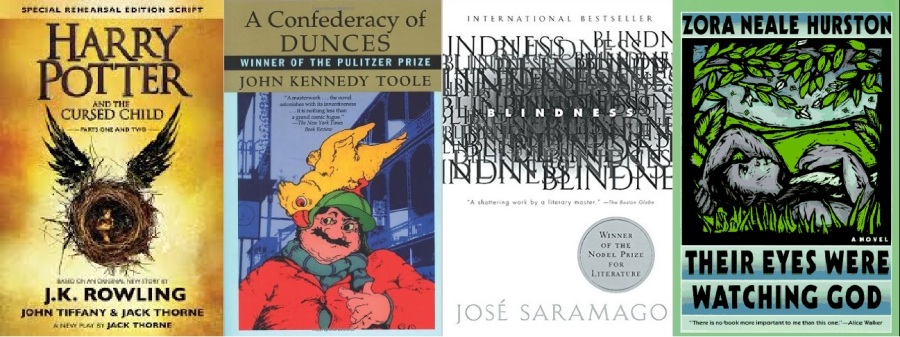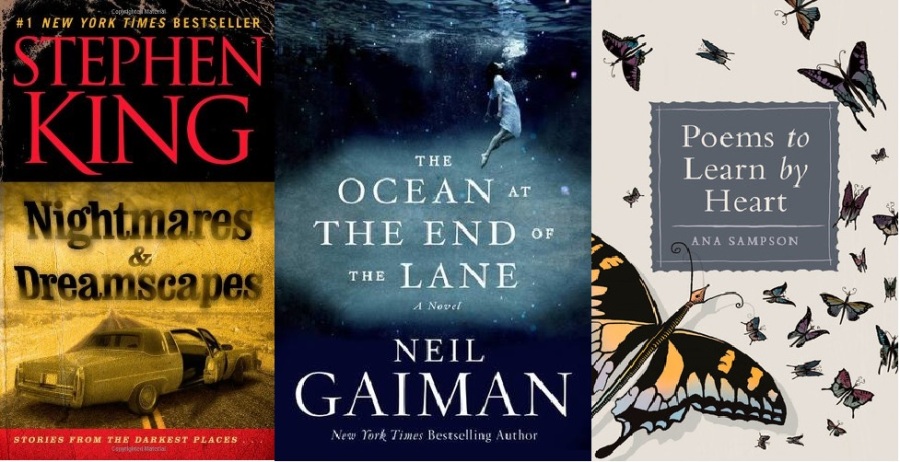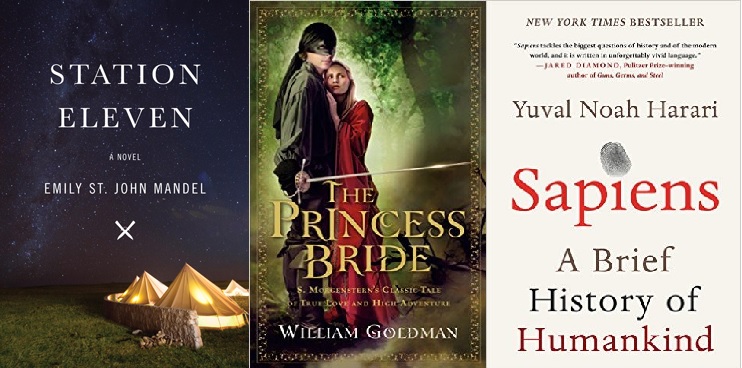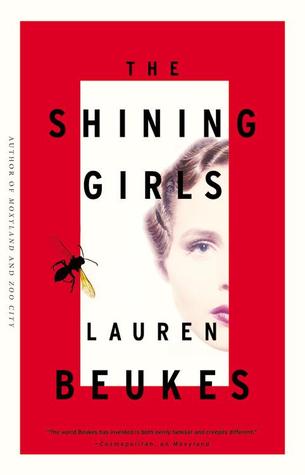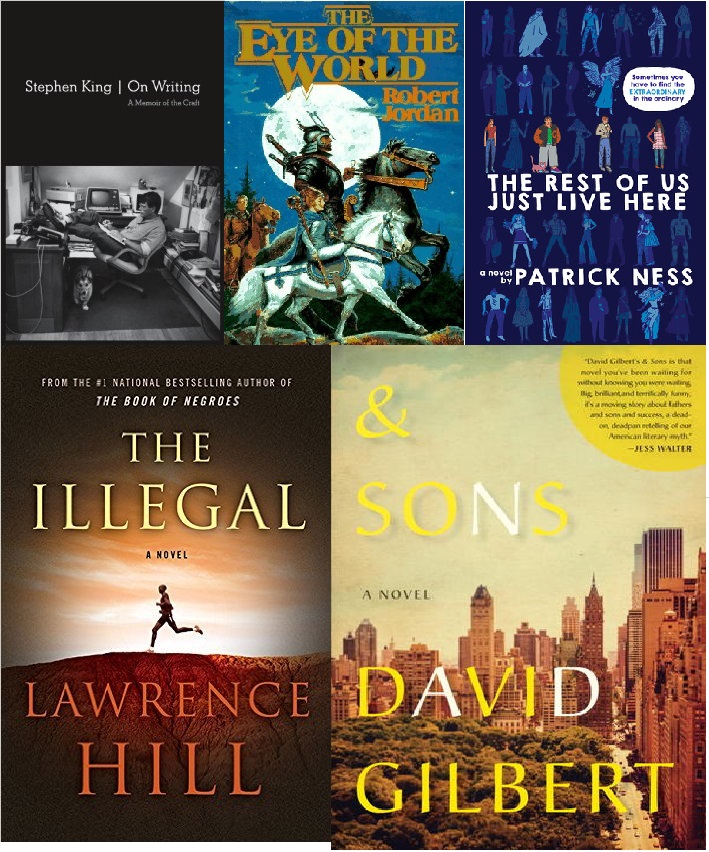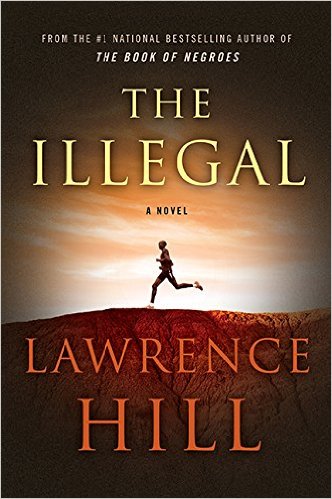November has been a fairly effective microcosm of the 2016 as a whole. I have tried to remain apolitical in this series of posts, and to simply reflect on words which struck me as significant or memorable, and which I think deserve to be read. So I will not rage against the political and societal events of the past month; this is not the time nor the place. I will merely say this: this month, I was especially glad for my family, my beautiful fiancee, and the escape offered to me by a good book.
Here are the books I read in November, in order, and the words therein that stayed with me:
#44
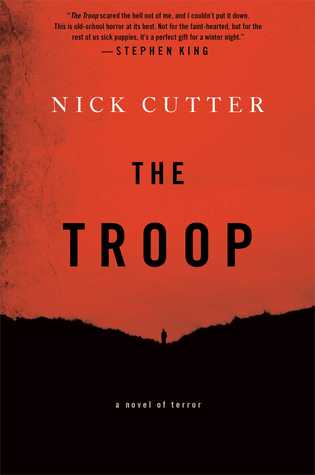
“That’s what’s different about kids: they believe everything can happen, and fully expect it to.” – The Troop by Nick Cutter
I read Nick Cutter’s second novel – The Deep – last summer, and was deeply enamoured with it. Cutter is often compared to early Stephen King, which is high praise in my eyes; high praise decidedly earned. The Troop is spooky. It gets under your skin in ways that will only become clear if you read the book. Cutter’s titular Scout troop check a lot of the boxes for classic adolescent tropes – the brain, the athlete, and the basket case at least are represented here. But in spite of their cliche character molds, the evolving group dynamics as the Troop confronts an unknowable horror are as appealing as the page-turning suspense. I read the whole thing in two marathon sessions, and was left, as I often am at the end of a King novel, wanting desperately to remain in the world the author had created.
But besides being a really, genuinely good story, Cutter’s novel is deeply insightful. A million books could be (and have been) written on the value of youth. Longing for perpetual youth, children succeeding where adults would fail, a child’s imagination illuminating the darkness surrounding a stodgy grown-up; all of these are well-trod paths in fiction. They are rich veins, surely (Peter Pan is my all-time favourite work of fiction), but many authors simply regurgitate what has been said time and again before. And often that still makes for engrossing literature. Cutter, however, manages to navigate the familiar roads while also laying down new brick. He adds something to the conversation around the inherent goodness (or lack thereof) of youth, and the peculiar ways in which the young are capable of so much more than adults allow.
The quotation above comes at the end of a longer passage, where the author essentially argues that children are able to confront horror in ways an adult never can because their minds are pliable enough to allow for the existence of horror along with good. Adults have set their mind like flint, and lost their imaginations; there are no monsters under the bed, no horrors populating their day-to-day. Thus, when confronted with horrifying realities, an adult’s brittle mind will break; but a child, forever fighting imagined monsters and vanquishing them, can face horror and triumph. The Troop may not be King’s IT, but it builds on the genre and tradition of that great book and for that alone it should be read and adored.
#45

“Unlike the presidents they served, whose every statement and movement was recorded and studied, very little was left behind to tell us about the lives of the slaves whose work allowed these men to reach for greatness through the wealth that human slavery brought them. Only by reading between the lines, and scouring letters, diaries, and documents left behind by their white masters, can we begin to piece together the lives of the enslaved African Americans who took care of the president and his family while the president took care of the United States. They deserve the attempt.” – The Invisibles: the untold story of African American slaves in the White House by Jesse J. Holland
The Invisibles promises a story begging to be told – the story of the slaves owned by pre-emancipation presidents of the United States. When I first saw this book advertised, months before its release, I immediately added it to my “to-read” list; as a history lover, and in light of current racial tensions and injustices, I was excited to dive into the lives and words of these forgotten men and women. The book does not quite deliver, however. It turns out that very few books and essays have been written about the subject because very few reliable primary sources exist to document the presidents’ slaves. The closer the book gets to the Civil War, the better records were kept at the time and the more sources are cited; however, the earliest parts of the book, and the parts that hold the most intrigue for me, personally, are based mostly on supposition and conjecture. Holland paints an interesting narrative picture of America during the Revolution and the subsequent generation-and-a-half, but the historical basis for these early chapters are shaky at best.
I still quite enjoyed the book, to be sure; it is an important essay, and has been made even more so since the U.S. presidential election. It is a demonstration of the importance of history, of looking back to look forward. And Holland himself admits in his conclusion that he hopes to find more sources and update the book for future versions, fleshing out the stories of these forgotten Americans. The book was highly readable, and I would certainly make time for an expanded edition, should one ever appear. The places in which the book falls short – primarily in its sourcing – are overcome by the intent: to tell the story of those who deserve, after all this time, to be remembered.
#46

“The subliminal mind has many dark, unhappy corners, after all. Imagine something loosening itself from one of those corners. Let’s call it a – a germ. And let’s say conditions prove right for that germ to develop – to grow, like a child in the womb. What would this little stranger grow into? A sort of shadow-self perhaps: a Caliban, a Mr. Hyde. A creature motivated by all the nasty impulses and hungers the conscious mind had hoped to keep hidden away: things like envy, and malice, and frustration.” – The Little Stranger by Sarah Waters
As a lover of classic noir fiction in the tradition of Stoker and Shelley, an admirer of English class drama a la Austen and Dickens, and a reveler in the delights of a good mystery from Christie or du Maurier, this book was a literary smorgasbord. Waters writes in a voice from the past, forgoing today’s popular colloquialisms for the refined English of 19th and early 20th century English writers. And it is this narrative voice that sets the tone for one of the best, most satisfying ghost stories I have ever read. Supernatural elements aside, the tragedy of the Ayres family’s fall from grace following WWII is an engrossing, fully explored look at the fall of the British aristocracy. It would be an engaging and worthwhile novel on its own. But the fact that Waters manages to wrap this countryside drama around a thoroughly unsettling tale of the shadow in the corner of your eye makes it as un-put-downable a book as I have read this year. The quotation above draws a lot of parallels, really, to a central theme of Cutter’s The Troop; the germination of a darkness, a disease of the body or of the spirit, until it becomes all-consuming. Waters is in no hurry to jump the shark – like the shadow-self, she is happy to let her dark tapestry weave itself slowly, until it covers you. This is one I will come back to again and again.
#47

“The man in black fled across the desert, and the gunslinger followed.” – The Gunslinger by Stephen King
Upon hearing that this was the next book on my list, an old friend remarked that he couldn’t believe I hadn’t read it, being a Constant Reader of King’s other work. And to be honest, I am not sure why I have always been apprehensive about The Dark Tower. I am an avid fan of the author, and I read epic fantasy abundantly; but for some reason, I couldn’t imagine an amalgamation of the two. Silliness now, in retrospect. Of course King’s incredible storytelling ability (which is what I admire most in his darker work) is perfectly suited for the worldbuilding required of truly great dystopian fantasy. I loved The Gunslinger, and I am excited to hopefully have time to continue the series.
There is just so much GOOD STUFF here, starting with the very opening line, above. King so quickly establishes hero and antagonist, setting, tone, and pace. In twelve words, you are hooked. And like so many of King’s published works, you can read it episodically; the parts of the novel are connected but different, clearly first published in pieces and assembled later. Each part has a slightly different feel, different atmosphere, different tone, that all contribute to the growing realization of this world that is not quite our own. As in all great fantasy, there are larger questions being asked of morality and fate – questions that, judging by the length of the series and the amount of time it has taken to be written, will be fully explored by the time all is said and done.
King never fails to surprise, delight, capture, and satisfy, and this book is no different. I don’t know why I ever feared it might be.
*****
Eleven months down. One month and three books to go! Check back every month for more Words on Words and other thoughts on An Awfully Big Adventure!













